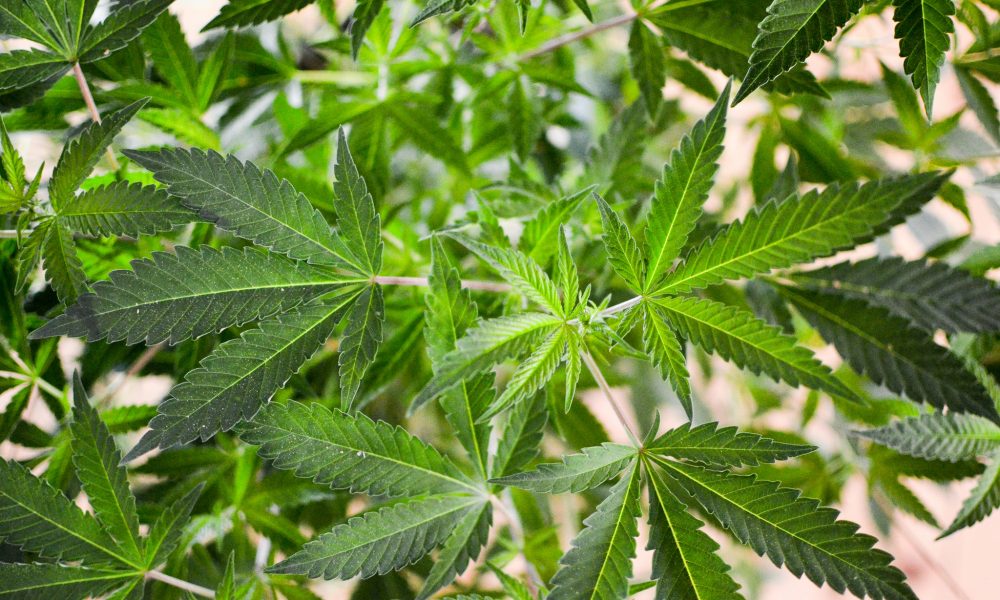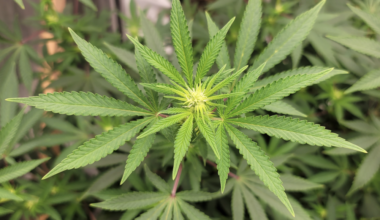The U.S. House of Representatives on Monday approved a bipartisan marijuana research bill that’s meant to streamline studies into cannabis, in part by allowing scientists to access products from state-legal dispensaries.
This comes days after the chamber separately approved a bill to federally legalize marijuana for the second time in history. And it also follows the Senate’s unanimous approval of a similar cannabis research bill last month.
The Medical Marijuana Research Act, sponsored by the unlikely duo of pro-legalization Rep. Earl Blumenauer (D-OR) and prohibitionist Rep. Andy Harris (R-MD), passed the House in a 343-75 vote.
“The cannabis laws in this country are broken, including those that deal with the medical research of marijuana,” Blumenauer said in a press release. “America’s growing cannabis industry operates without the benefit of a robust research program. Instead, we are outsourcing research to Israel, the United Kingdom, and Canada to our detriment.”
“One example of this policy failure is our inability to effectively test for cannabis impairment. Employees are failing drug tests, not because they are impaired, but because they used recreational or medical cannabis sometime in the last month,” he said. “This is just one symptom of our shortsighted, illogical, and destructive set of policies.”
House Energy and Commerce Committee Chairman Frank Pallone (D-NJ), who managed bills on the floor for the majority on Monday, said that the body’s passage of a federal cannabis legalization bill last week, as well as state-level reforms, “highlight the need for increased research about safety and efficacy of the marijuana products being consumed by millions of Americans.”
“This is an important step towards understanding the positive and negative health effects of the products being frequently consumed by people across our country,” he said.
Tonight the House votes on my Medical Marijuana Research Act to study health benefits of state-legal cannabis products. Absent a framework, research is outsourced to other countries-a missed opportunity for the industry & millions of Americans who consume cannabis products.
— Earl Blumenauer (@repblumenauer) April 4, 2022
Rep. Morgan Griffith (R-VA), a cosponsor of the cannabis research bill, also rose in support.
While acknowledging that members have differing views on broader marijuana reform, he said they have “joined forces to advocate for more research on the use of cannabis products to treat medical conditions.”
I cosponsored the Medical Marijuana Research Act to expand opportunities for scientists to get the info we need about marijuana’s potential benefits and harms.
I am glad the House passed our bill today, and I hope this commonsense change to the law will continue to advance. pic.twitter.com/tiRP2JvZ1J
— Morgan Griffith (@RepMGriffith) April 4, 2022
Rep. Debbie Dingell (D-MI), another cosponsor, said that the country has “seen dramatic changes in the legal status of marijuana at the state level, my state included.” She added that the “federal framework for conducting marijuana research is decades old, and has not kept pace with these changes.”
“It is high time we modernize our nation’s federal regulations to facilitate legitimate medical research into the impacts of marijuana,” the congresswoman said.
Harris, meanwhile, said that the bill “makes it easier to do rigorous medical research—the same type of research we expect to be done on any of the drugs that are sold as medicines in this country.”
—
Marijuana Moment is already tracking more than 1,000 cannabis, psychedelics and drug policy bills in state legislatures and Congress this year. Patreon supporters pledging at least $25/month get access to our interactive maps, charts and hearing calendar so they don’t miss any developments.![]()
Learn more about our marijuana bill tracker and become a supporter on Patreon to get access.
—
The legislation would remove barriers for researchers seeking to apply and get approved to study cannabis. It would also set clear deadlines on federal agencies to act on their applications and also make it easier for scientists to modify their research protocols without having to seek federal approval.
Both the House and Senate passed earlier versions of their respective cannabis research bills in late 2020, but nothing ended up getting to then-President Donald Trump’s desk by the end of the last Congress. It remains to be seen whether, following the House’s passage of its version again, the two chambers will be able to negotiate a deal on provisions of unified legislation to send to President Joe Biden.
After Monday’s vote, Blumenauer said he is “prepared to work with my friends in the Senate to reconcile differences between this legislation and the Senate-passed Cannabidiol and Marihuana Research Expansion Act.”
Advocates in support of and against legalization praised the House legislation.
“These common-sense regulatory changes are necessary and long overdue,” Paul Armentano, deputy director of NORML, said in a blog post.
“Currently, the limited variety of cannabis cultivars accessible to federally licensed researchers does not represent the type or quality of cannabis products currently available in legal, statewide markets,” he said. “The reality that nearly one-half of U.S. adults have legal access to these multitude of cannabis products, but our nation’s top scientists do not is the height of absurdity and it is an indictment of the current system.”
Kevin Sabet, president of prohibitionist organization Smart Approaches to Marijuana, said the science reform is “the right approach to marijuana policy.”
“The drug does not have to be legalized and a nationwide industry created just to conduct better research,” he argued.
Congressional researchers separately released a report recently that details the challenges posed by ongoing federal prohibition and the options that lawmakers have available to address them.
Before the House passed the bill on Monday, it was slightly amended to clarify in several sections that it covers marijuana as well as “any derivative, extract, preparation, and compound thereof” and to make other technical changes.
Leadership brought the bipartisan bill forward using a process known as suspension of the rules, under which no further amendments were allowed and a two-thirds supermajority was needed for passage.
The House passed H.R. 5657 – Medical Marijuana Research Act, as amended by a vote of 343-75.
— House Press Gallery (@HouseDailyPress) April 4, 2022
Unlike the House proposal, the measure the Senate passed last month would not let researchers study dispensary products, but takes other steps its sponsors say would streamline the investigatory process for scientists and encourage the Food and Drug Administration (FDA) to develop cannabis-derived medicines.
The House bill, meanwhile, would additionally mandate that the Drug Enforcement Administration (DEA) license more growers and make it so there would be no limit on the number of additional entities that can be registered to cultivate marijuana for research purposes. It would also require the U.S. Department of Health and Human Services (HHS) to submit a report to Congress within five years after enactment to overview the results of federal cannabis studies and recommend whether they warrant marijuana’s rescheduling under federal law.
For half a century, researchers have only been able to study marijuana grown at a single federally approved facility at the University of Mississippi, but they have complained that it is difficult to obtain the product and that it is of low quality. Indeed, one study showed that the government cannabis is more similar to hemp than to the marijuana that consumers actually use in the real world.
DEA has taken steps in recent years to approve new cultivators of marijuana to be used in studies, but there has been bipartisan agreement the agency has inhibited cannabis research by being slow to follow through on those applications. Some of the newly approved operations are have only begun to produce their first legal cannabis crops in recent months.
Under the House bill, the agency would be forced to start approving additional cultivation applications for study purposes within one year of the legislation’s enactment.
Cannabis has important medical uses. But current federal law significantly limits researchers’ ability to study them.
Tonight, I’ll be voting for @repblumenauer’s #MedicalMarijuanaResearch Act to remove barriers to critically needed research on health benefits of cannabis.— Rep. Barbara Lee (@RepBarbaraLee) April 4, 2022
HHS and the attorney general would be required under the bill to create a process for marijuana manufacturers and distributors to supply researchers with cannabis from dispensaries. They would have one year after enactment to develop that procedure, and would have to start meeting to work on it within 60 days of the bill’s passage.
In general, the legislation would also establish a simplified registration process for researchers interested in studying cannabis, in part by reducing approval wait times, minimizing costly security requirements and eliminating additional layers of protocol review.
Meanwhile, large-scale infrastructure legislation that was signed by Biden in November contains provisions aimed at allowing researchers to study the actual marijuana that consumers are purchasing from state-legal businesses instead of having to use only government-grown cannabis.
National Institute on Drug Abuse (NIDA) Director Nora Volkow told Marijuana Moment in an earlier interview that scientists have been unnecessarily limited in the source of cannabis they’re permitted to study—and it makes sense to enact a policy change that expands their access to products available in state-legal markets.
“Since dispensaries are selling products that are supposedly very specific for certain characteristics—there is not any one plant—without access to that variety and diversity of plant products, researchers cannot advance that question,” she said.
Colorado Launches Another Marijuana-Themed License Plate Auction To Support Disabled Communities
Photo courtesy of Philip Steffan.
Medical Disclaimer:
The information provided in these blog posts is intended for general informational and educational purposes only. It is not a substitute for professional medical advice, diagnosis, or treatment. Always seek the advice of your physician or other qualified healthcare provider with any questions you may have regarding a medical condition. The use of any information provided in these blog posts is solely at your own risk. The authors and the website do not recommend or endorse any specific products, treatments, or procedures mentioned. Reliance on any information in these blog posts is solely at your own discretion.







